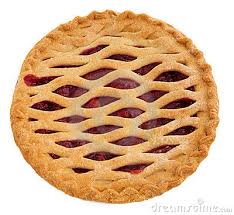中文词源
whole 全部的
来自古英语hal,整个的,完整的,健康的,来自PIE*kailo,整个的,词源同health,holy,hollow.
英语词源
- whole
-
whole: [OE] Whole is at the centre of a tightlyknit family of English words descended from prehistoric Germanic *khailaz ‘undamaged’ (the other members – hail ‘salute’, hale, hallow, heal, health, and holy – have have branched off in different semantic directions, but whole has stayed fairly close to its source). The Germanic form, which also produced German heil, Dutch heel, and Swedish and Danish hel, went back to an Indo-European *qoilos, source also of Russian celyj ‘whole’ and Welsh coel ‘good omen’. Hale [13] originated as a northern variant of whole (whose wh- spelling emerged in the 16th century).
The compound wholesome was probably formed in Old English, but it is not recorded until the 12th century.
=> hail, hale, hallow, heal, health, holy - whole (adj.)
- Old English hal "entire, whole; unhurt, uninjured, safe; healthy, sound; genuine, straightforward," from Proto-Germanic *haila- "undamaged" (cognates: Old Saxon hel, Old Norse heill, Old Frisian hal, Middle Dutch hiel, Dutch heel, Old High German, German heil "salvation, welfare"), from PIE *kailo- "whole, uninjured, of good omen" (cognates: Old Church Slavonic celu "whole, complete;" see health).
The spelling with wh- developed early 15c. The sense in whole number is from early 14c. Whole milk is from 1782. On the whole "considering all facts or circumstances" is from 1690s. For phrase whole hog, see hog (n.). - whole (n.)
- "entire body or company; the full amount," late 14c., from whole (adj.).
权威例句
- 1. She probably sensed that I wasn'ttelling her the whole story.
- 她可能意识到了我并没有对她全盘托出。
- 2. "Take That" are the best group in the whole world. So there.
- “接招”乐队是世界上最好的组合,就是这样的。
- 3. A violent explosion seemed to jolt the whole ground.
- 剧烈的爆炸好像要把整个地面都掀起来。
- 4. I gradually got rather disillusioned with the whole setup of the university.
- 渐渐地,我对大学的整个体制感到相当失望。
- 5. The Government is anxious to keep the whole case out of court.
- 政府迫切希望整件事能够在庭外解决。
